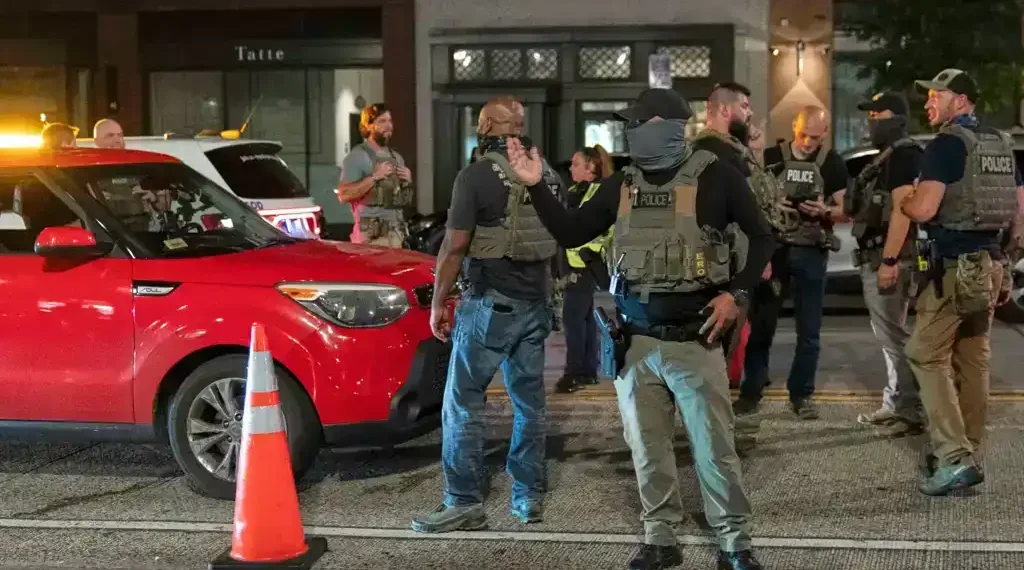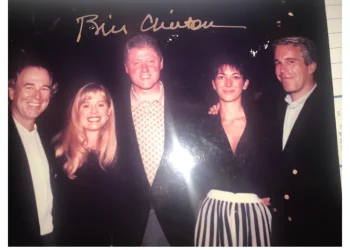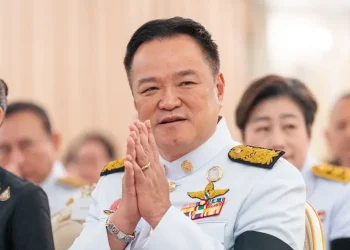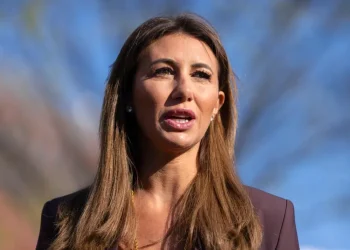D.C. Residents Protest Federal Law Enforcement Expansion Amid White House Security Surge
Published Time 08-14-2025, 13:00
Washington, D.C., neighborhoods experienced heightened tension this week as residents protested the expanded presence of federal law enforcement following the White House’s announcement that federal agents would patrol the city around the clock. The move comes amid President Trump’s temporary takeover of the city’s police operations, stirring debate over safety, civil liberties, and the effectiveness of federal intervention.
Residents Voice Opposition to Increased Federal Presence
On Wednesday, Washington, D.C., residents gathered along the 14th Street Northwest corridor to protest vehicle checkpoints set up by law enforcement. Demonstrators shouted slogans like “Go home, fascists” and “Get off our streets,” urging drivers to avoid the checkpoint.
The protests followed President Donald Trump’s unprecedented decision to assume temporary control of the city’s Metropolitan Police Department for up to 30 days. While the president cited “emergency-level” crime as justification, city officials highlighted that violent crime has dropped significantly over the past two years, reaching a 30-year low after a prior spike.
D.C. Mayor Muriel Bowser has navigated a complex political landscape, describing the federal takeover as both an “authoritarian push” and a potential boost to public safety. However, the administration has not provided clear metrics for success.
Expanded Federal Patrols Across the City
For the past two days, small groups of federal agents have been visible in various neighborhoods. On Wednesday, their presence intensified, with agencies including Homeland Security Investigations, the Drug Enforcement Administration (DEA), and the Federal Bureau of Investigation (FBI) patrolling popular areas like U Street, the National Mall, and the Navy Yard.
National Guard troops were also deployed, with plans to increase missions in the city starting Thursday. A National Guard spokesman, speaking anonymously, confirmed coordination efforts but did not provide full operational details.
Arrests and Public Reactions
Federal and city police made 43 arrests on Tuesday night, a noticeable increase from the prior night. Offenses included driving under the influence, unlawful entry, assault warrants, and possession of illegal firearms. Seven firearms were reportedly seized.
D.C. Councilmember Christina Henderson described the arrests as routine and downplayed claims of escalating crime. “I’m looking at this list of arrests, and they sound like a normal Saturday night in any big city,” Henderson said. She criticized the federal presence as largely unnecessary and politically motivated.
Legal Authority and Political Debate
Unlike in other U.S. cities, the president holds legal authority to assume control of Washington’s police department for up to 30 days. Any extension beyond this period would require congressional approval, which is expected to face resistance from Democratic lawmakers.
President Trump indicated that he may seek longer authority or appeal to Congress to enforce laws he views as insufficiently stringent on crime. “We’re gonna do this very quickly. But we’re gonna want extensions,” Trump said, noting the possibility of declaring a national emergency if necessary. He reiterated these claims on his social media platform, asserting that “D.C. is back under Federal Control where it belongs.”
Councilmember Henderson has already engaged with congressional contacts to oppose any extension. “It’s Day Three, and he’s already saying he’s going to need more time?” she said.
Targeted Enforcement Across Multiple Offenses
According to the White House, federal and city officers have made over 100 arrests since last week, covering offenses ranging from traffic violations to more serious charges like assault and illegal firearm possession.
White House spokeswoman Taylor Rogers defended the operation, stating, “President Trump is delivering on his campaign promise to clean up this city and restore American Greatness to our cherished capital.”
The federal response also includes removing homeless encampments from public spaces. U.S. Park Police have cleared dozens of tents since March, offering individuals shelter and addiction treatment, with fines or jail time as consequences for those who refuse assistance. City officials report expanding shelter capacity and outreach services in response.
Crime Trends and Local Law Enforcement
While the federal intervention continues, violent crime in Washington, D.C., has generally decreased in recent years. Experts note that the city’s violence levels remain higher than the average for other major U.S. cities, but they are trending downward overall, mirroring patterns seen nationally since the pandemic.
Police Chief Pamela Smith emphasized that federal officers help fill gaps created by a nearly 800-officer shortfall in the city’s Metro Police Department. Mayor Bowser noted that while federal officials have not provided specific objectives, removing illegal firearms and increasing street presence are shared priorities.
Some residents, however, remain uneasy about the increased federal presence. Washington native Sheina Taylor described the heightened visibility of officers and National Guard troops as intimidating, particularly for minority communities. “It’s more fearful now because even though you’re a law-abiding citizen, here in D.C., you don’t know,” she said.
Balancing Safety and Civil Liberties
The expansion of federal law enforcement in Washington, D.C., has sparked an ongoing debate about balancing public safety with civil liberties. City leaders, residents, and federal officials continue to monitor the effects of the increased patrols, while discussions over potential extensions of federal authority are likely to remain politically charged.
This article was rewritten by JournosNews.com based on verified reporting from trusted sources. The content has been independently reviewed, fact-checked, and edited for accuracy, neutrality, tone, and global readability in accordance with Google News and AdSense standards.
All opinions, quotes, or statements from contributors, experts, or sourced organizations do not necessarily reflect the views of JournosNews.com. JournosNews.com maintains full editorial independence from any external funders, sponsors, or organizations.
Stay informed with JournosNews.com — your trusted source for verified global reporting and in-depth analysis. Follow us on Google News, BlueSky, and X for real-time updates.














